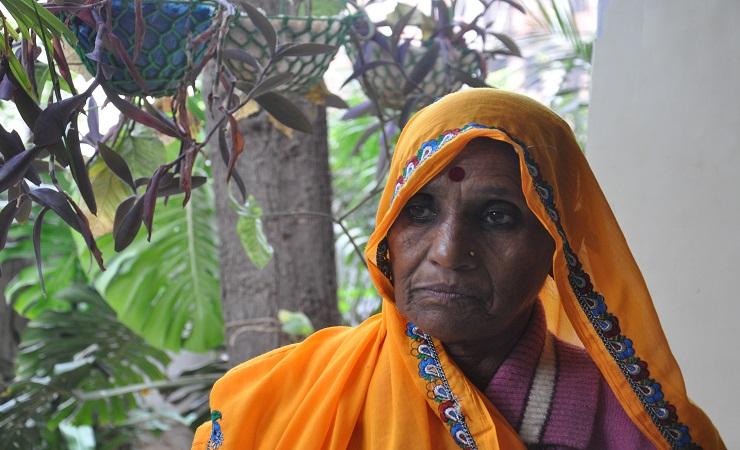ASIACALLING
India’s justice system failing women
"For Indian women who have experienced sexual violence, accessing justice and services is a fraught and troubled process"
Jasvinder Sehgal

For Indian women who have experienced sexual violence, accessing justice and services is a fraught and troubled process – police, hospitals and courts subject them to humiliating and degrading conditions, and justice is rarely realized.
Asia Calling reporter Jasvinder Sehgal has covered this issue for more than 7 years. For our final episode he takes a look at what he’s witnessed, and asks how far India has come.
**A warning, some listeners may find the content in this feature disturbing.
Its seven and a half years since I first reported for Asia Calling. In that time, I’ve met some incredibly strong survivors of sexual violence, who refuse to be broken by the abuse they’ve experienced, and are fighting for justice, despite the odds.
One of those women is Bhanwari Devi. She was gang raped in 1992 while campaigning to end child marriage. In 2013, more than twenty years after the incident, she was still fighting for justice.
“I will continue my fight no matter what the result might be,” she told me four years ago. “My struggle for justice is proof of the government’s incompetence. I’m not fighting for myself, but for society and all women.”
India’s police and court system made the injustice worse - accusing Bhanwari of fabricating the incident.
“I will not withdraw,” she continued. “I’m angry at the way Indian women are being harassed and victimised. I’m angry that the government is sleeping and not taking any action. I think the culprits should be hung to death.”
Bhanwari is just one of a handful of survivors whose stories I’ve been humbled to share with Asia Calling listeners.
Sadly, these crimes are too common. And over the years I’ve been covering them, India has seen little improvement. Nationally, incidents of rapes have increased by 12 % in the last year.
The situation is made worse by the country’s high rate of child marriage.
Under Indian law, the minimum age of marriage is 21 for men, and 18 for women. But in practice, it’s another story.
Twenty percent of all Indian girls marry before they turn 15. In my home state of Rajasthan, almost 80 percent of girls are married under 15 years of age.
Searching for solutions, last February I travelled to Veerni Institute in the city of Jodhpur, Rajasthan.
The institute is a non-profit boarding school, offering an education to child brides from remote villages.
That’s where I met Dhapu. “I got married when I was very young. I think it was year 2009. Today, I am 15 years old,” she told me. “I don’t remember much about my marriage but I know that my husband doesn’t do anything.”
Nearly two years later, I recently learned that Dhapu has come along way since then. Excelling in her studies, she topped the class at Veerni Institute. Curious to catch up with her, I returned to Jodhpur.
Dhapu has now finished school, she’s continuing her studies, and has started teaching at Veerni Institute. “I remember what I promised you last time,” she said. “I will stop child marriages in this country. I will motivate young girls to attain education and reject child marriage.”
Inspired by the change I saw in Dhapu, I decided to visit Bhanwari Devi as well, to see how time has treated her.
But Bhanwari has a very different story. She’s aged since we last met. Her hair is graying, and her face has wrinkles.
Her mistreatment compelled the judiciary to provide new definitions for sexual harassment and introduce workplace guidelines to protect women.
But it’s now 25 years since she was attacked, and Bhanwari is still waiting for the court judgment on her appeal.
“I haven’t given up yet,” she emphasized. “My fight is continuing and will continue until my death. I am happy that because of me, many girls today have a safer working environment. And women are brave enough to speak out against atrocities.”
India’s justice system owes a lot to women, and there’s still a long way to go.
A report released by Human Rights Watch last month showed that women who experience sexual violence are routinely harassed by police and terrorized into silence.
But Bhanwari’s ability to keep fighting in the face of persistent injustice gives me hope.
Back in my studio the clock tells me that my time to report on these brave characters is up.
Asia Calling is wrapping up at the end of 2017. But the people we’ve brought to your ears – and their bravery - will live on.
Thanks for sharing this time with me, dear listeners.
- Jasvinder Sehgal
- India sanitation
- Indian women
- women's rights
- sexual abuse
Komentar (0)
KBR percaya pembaca situs ini adalah orang-orang yang cerdas dan terpelajar. Karena itu mari kita gunakan kata-kata yang santun di dalam kolom komentar ini. Kalimat yang sopan, menjauhi prasangka SARA (suku, agama, ras dan antargolongan), pasti akan lebih didengar. Yuk, kita praktikkan!